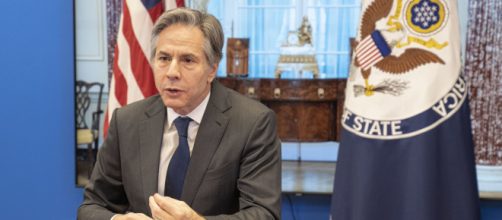Fifteen people and institutions from Iran, Syria, and Uganda have been slammed with sanctions by the United States government over what it describes as their involvement in "serious" human rights abuses and acts of repression against civilians, political opponents, and peaceful protesters.
The U.S. announces measures
In a statement, the U.S. Secretary of State, Anthony Blinken, announced that among those sanctioned are the Ugandan military intelligence boss, Major General Abel Kandiho, two Syrian Air Force officers accused by Washington of being masterminds of chemical attacks against civilians and three officers of the Syrian secret services.
In the case of Iran, Washington has targeted the Special Units of Iran's Law Enforcement Forces, several of their officials, and Gholamreza Soleimani, who commands Iran's hardline Basij militia. According to the U.S. Treasury Department statement, the Iranian Counter-Terror Special Forces (NOPO) have also been sanctioned, as well as two prisons where, according to the US, arbitrary arrests and extrajudicial killings have been committed.
The Treasury explained that these units are dedicated to crowd control and the suppression of protests in the Islamic Republic and played a key role in the brutal crushing of the demonstrations that emerged after the 2009 presidential elections.
Sanctioned Syrian Officials
As for Syria, the U.S. has punished General Taufiq Mohamed Jadur, commander of Air Division 22, for his role in command of the Dumair base in February 2018, from where the opposition stronghold of Eastern Ghouta was bombarded with chemicals.
Also sanctioned is Syria's General Mohamed Yusef al Hasuri, former head of Brigade 50 at the Al Shairat base, and Adib Namer Salameh, deputy director of the Syrian Air Intelligence Force.
Uganda hasn't been spared either. Its commander of Military Intelligence, General Abel Kandiho, has been slammed with sanctions for allegedly arresting and physically abusing people in the East African state.
Due to the sanctions, the said individuals and entities' assets under U.S. jurisdiction are frozen. They are also prohibited from doing financial transactions with U.S. citizens.


